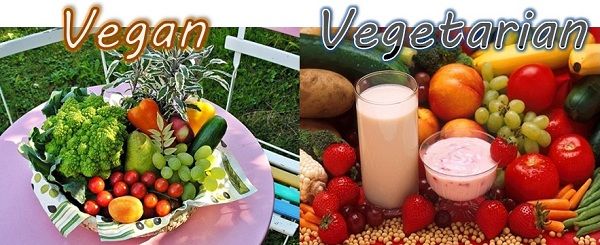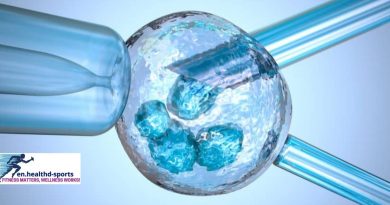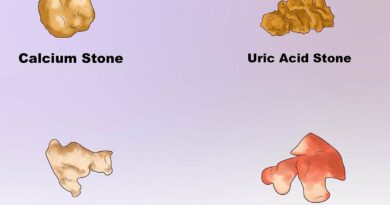Understanding the Difference between Vegetarians And Vegans
Vegetarians do not eat meat, poultry, fish, or any products derived from animals. Vegans not only avoid meat, but they also do not consume any animal-derived products including dairy, eggs, or honey.
Vegetarians avoid meat and Vegans also avoid all animal products. While both lifestyles have similar approaches, there are some distinct differences worth exploring.

Credit: rawmunchies.org
What is a Vegetarian?
Definition of a vegetarian
A vegetarian is someone who chooses to abstain from consuming meat, poultry, and seafood. However, this definition may vary depending on the individual’s beliefs and preferences. Some vegetarians may consume dairy products and eggs, while others may avoid them. Vegetarianism can also be practiced for ethical, environmental, or health reasons.
Types of vegetarians
There are several types of vegetarians with varying dietary restrictions. Here are some examples:
-
Lacto-ovo vegetarians: They consume dairy products and eggs but abstain from meat, poultry, and seafood.
-
Lacto-vegetarians: They consume dairy products, but avoid meat, poultry, seafood, and eggs.
-
Ovo-vegetarians: They consume eggs, but avoid dairy products, meat, poultry, and seafood.
-
Flexitarians: They occasionally consume meat products, but mostly consume plant-based foods.
-
Pescatarians: They avoid meat and poultry, but consume seafood.
Reasons for becoming a Vegetarian
People choose to become vegetarians for various reasons. Here are some common ones:
-
Ethical: Some people choose to abstain from consuming meat products due to ethical concerns about animal welfare and cruelty.
-
Environmental: Animal agriculture is a significant contributor to environmental problems such as deforestation, methane emissions, and water pollution. Some people choose to become vegetarians to reduce their environmental impact.
-
Health: Vegetarian diets are often associated with several health benefits, such as a reduced risk of heart disease, diabetes, and some cancers.
-
Religious or Cultural: Some religions and cultures practice vegetarianism as a part of their lifestyle or dietary laws.
vegetarianism is a dietary lifestyle that involves abstaining from consuming meat, poultry, and seafood. There are various types of vegetarians with different dietary restrictions, and people choose to become vegetarians for ethical, environmental, health, or cultural reasons.
What is a Vegan?
Definition of a Vegan
Veganism is a lifestyle that abstains from the use of all animal-based products, including meat, poultry, dairy, honey, and even leather and wool. Vegans choose not to consume or use any animal-derived products whatsoever. They believe that it is unethical to exploit or harm animals for their own benefit, including for food, clothing, or any other purposes.
Types of Vegans
There are different types of vegans, including dietary vegans, ethical vegans, environmental vegans, and health vegans. Here’s a breakdown of each type:
-
Dietary Vegans: These are vegans who follow a plant-based diet, avoiding all animal products.
-
Ethical Vegans: These vegans base their lifestyle choices on their ethical views towards animal rights and welfare. Their beliefs extend beyond just dietary choices to include avoiding any cruelty towards animals and supporting animal rights organizations.
-
Environmental Vegans: These vegans choose to abstain from animal products due to environmental issues such as climate change, habitat loss, and pollution caused by animal farming practices.
-
Health Vegans: These vegans adopt a plant-based diet for health reasons, believing that it is the healthiest diet for them.
Reasons for Becoming a Vegan
People choose to become vegans for various reasons, including:
-
Animal welfare concerns
-
Environmental issues
-
Health reasons such as reducing the risk of chronic diseases like diabetes, heart disease, and cancer
-
Religious or spiritual reasons
-
Personal preference and taste
being a vegan is more than just a dietary choice; it’s a lifestyle that encompasses ethical, environmental, and health aspects. Vegans choose to abstain from all animal products and byproducts, believing that it is the right thing to do for themselves and the planet.
Differences between Vegetarians and Vegans
Dietary Restrictions
-
Vegetarians typically avoid any meat obtained from animals, but may still consume other products obtained from animals such as dairy, eggs and honey.
-
Vegans, on the other hand, completely abstain from consuming any animal products or by-products including meat, poultry, dairy, eggs and honey.
Lifestyle and Ethics
-
Vegetarianism is often considered a dietary choice rather than a lifestyle or ethical decision. People often adapt to a vegetarian diet for health reasons or because they are uncomfortable with the way animals are raised and slaughtered for food.
-
Vegans, in contrast, see their dietary choice as part of an overall lifestyle and ethical decision. They typically adopt veganism not just as a dietary choice, but as a way of living that seeks to reduce animal exploitation in all aspects of life.
Environmental Impact
-
Many people choose vegetarianism or veganism because of the environmental concerns surrounding the meat and dairy industries. However, vegans are generally more environmentally conscious than vegetarians.
-
This is because livestock farming has a significant impact on the environment through deforestation, water use, greenhouse gas emissions and pollution. Vegans avoid all animal products, which means they have a lower carbon footprint and use fewer resources overall.
Health Benefits and Risks
-
Vegetarians may experience some health benefits such as lower risk of heart disease, diabetes, and high blood pressure due to their consumption of plant-based foods. However, they may also be at risk of nutrient deficiencies such as iron, vitamin B12, and calcium.
-
Vegans, on the other hand, face similar risks of nutrient deficiencies but have a lower risk of heart disease and high blood pressure due to a diet that avoids saturated fat found in dairy and meat products. Vegans also have a lower risk of certain cancers due to higher intakes of fruits, vegetables, and fiber.
Nutritional Considerations
-
For vegetarians, it is important to have a balanced and varied diet that includes sources of protein such as dairy and eggs, as well as iron-rich foods such as beans and leafy greens.
-
For vegans, it is important to consume fortified foods and supplements to ensure adequate intake of nutrients such as iron, vitamin B12, and calcium that are typically found in animal products.
while vegetarians and vegans may have some similarities in their diet, they are two distinctly different dietary lifestyles. Whether you choose to be a vegetarian or a vegan, it is important to ensure that your diet is nutritionally balanced and meets your individual needs.
Misconceptions about Vegetarians and Vegans
Common Myths about Vegetarians and Vegans
There are several misconceptions surrounding vegetarians and vegans, some of which are:
-
Vegetarians and vegans don’t get enough protein. This is one of the most common myths surrounding plant-based diets. Protein deficiency is rare in vegetarians and vegans since there are various plant-based sources that provide the much-needed nutrients, such as tofu, lentils, and nuts.
-
Vegetarians and vegans are always hungry. This is a gross misconception since plant-based diets promote satiety. Fruits, vegetables, and whole grains are packed with fiber and provide ample energy to sustain an individual throughout the day.
-
Vegetarians and vegans are always sick. Nothing could be further from the truth – plant-based meals are nutrient-dense and are packed with vitamins, minerals, and antioxidants that boost the immune system and keep diseases at bay.
Debunking Popular Misconceptions
While there are numerous myths surrounding vegetarians and vegans, it’s essential to debunk some of the most commonly held ones, including:
-
Plant-based diets are deficient in important nutrients. This myth is not true, and a well-planned vegetarian or vegan diet has proven to be nutritionally adequate. An adequately planned diet can provide all the necessary nutrients such as iron, calcium, and vitamin B12.
-
Meat is the only source of protein. This myth is untrue since there are various plant-based sources of protein such as lentils, beans, and whole grains that provide sufficient and high-quality protein. Individuals on a plant-based diet can also opt to supplement with protein shakes or protein bars.
-
Vegetarians and vegans don’t care about animal welfare. This is simply not true – most vegetarians and vegans are passionate about animal welfare, and their choice of diet is often a reflection of compassion for animals.
it’s essential to dispel the numerous myths surrounding vegetarianism and veganism. It’s clear that a well-planned plant-based diet is not only nutritious but also beneficial to an individual’s health and the environment. It’s high time we put aside our prejudices and embrace a lifestyle that fosters compassion for both animals and our planet.
Vegan vs. Vegetarian
Conclusion
It’s important to understand the difference between vegetarians and vegans. While vegetarians refrain from eating meat, fish or poultry, they may consume dairy, eggs, and other animal-derived ingredients. On the other hand, vegans avoid all animal products, including honey and gelatin. Vegans also avoid using products tested on animals or containing animal-derived ingredients like leather. The reasons for adopting vegetarian or vegan lifestyles may vary, including ethical, environmental, or health-related concerns. Both vegetarians and vegans can have nutrient-rich, balanced diets, but vegans must ensure they get enough protein, calcium, iron, and vitamin B12 from plant-based sources or supplements. Understanding the differences between these two dietary lifestyles can enable individuals to make informed choices about their diets.
Frequently Asked Questions on Understanding the Difference between Vegetarians And Vegans
1. What is the main difference between vegetarian and vegan diets?
Vegetarians exclude meat, but may consume animal products like cheese and milk. Vegans avoid all animal-derived products.
2. Is it safe to follow a vegan or vegetarian diet?
Yes. Both diets can be healthy when balanced and include a variety of nutrient-dense foods, but it’s essential to ensure adequate protein, iron, and vitamin B12 intake.
3. How do vegetarians and vegans get enough protein?
Vegetarians can get protein from eggs, dairy, and plant-based sources like legumes and nuts. Vegans can obtain protein from soy products, quinoa, lentils, and beans.
4. Are vegetarian and vegan diets sustainable for athletes?
Yes. Vegetarian and vegan diets can provide sufficient energy and nutrients for athletes, but may require careful planning to ensure adequate protein, iron, and zinc intake.




